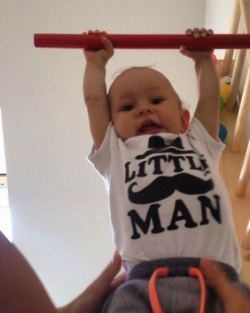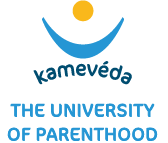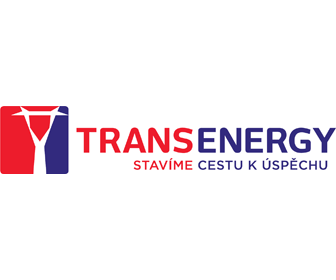Why is it important to start in good time?

He became a Senior Doctor in medicine. He's the head of all-around development for coaches and young players in volleyball. He was also the Coach of the Czech National Volleyball Team and has been coaching the Extraliga-junior teams in Velké Meziříčí, where his teams have won several medals in the national championships. He transfers his passion for sport into his work and says that a real medical expert must have genuine enthusiasm and passion for what he's doing. That expert must enjoy his work, must be open for learning new things and must investigate deeper in every field of his activity. There is a need to be interested in every single detail which could be decisive at any specific critical moment. Petr has a working relationship with the Czech Republic's best known physiotherapist prof. Pavel Kolář. Petr is also interested in the latest sport science trends.
He says:
When you have a patient on a table that you can't finish halfway. You must finish the treatment and it must be perfect. I had to learn new things very quickly. For example, there is a need to work equally precisely with both of your hands, because when I operate on the left or right knee I must hold a camcorder alternately in my left and right hand otherwise there is no other chance to do it. I must be sure of what I'm doing and must be totally concentrated as well. My patient could get harmed if I'm not fully focused on what I'm doing. I must respect the man's health and must do the best job possible inside or outside of the operating room. Only under such circumstances, I can teach others and only that way, can our department work well. I can't and don't want to do those things differently.
Petr, you're a doctor of medicine, but you're also a sportsman and a coach. When you observe your charge (players), or when you deal with your patients' locomotor system problems, do you notice any moments or situations when you see that some sportsman does things the wrong way and risks an injury or causes harms to himself?
When a player has warmed up adequately and worked himself in to a game, there is little danger of him straining muscles. The most important thing is that he must concentrate on what he's going to do in the next split second. If something makes him lose concentration, if he suddenly looks somewhere else, or he's bored, because the workout is monotonous and boring, he could make a badly-uncoordinated move which might lead to an injury. There should be no injury during a well-planned training session. There is very little possibility of injury if a sportsman is concentrating fully and focused on his sport.
What do you think of early introduction of the locomotor system to children? Could it cause any harm to them?
I think, it can't cause any harm. On the contrary, it's very beneficial. They should develop their locomotor system as soon as possible. To be honest, I haven't come across any case when a child at preschool age harmed his locomotor system by general physical activity. I haven't had to deal with such problems so far. Broadly speaking, it's almost impossible to overload children by physical activity. The joints and an entire locomotor system is entirely flexible. Nothing's fully fixed yet at that early stage of life. First of all, children don't produce any testosterone that means they haven't got enough strength to harm themselves. They make their movements with ease. They're still far from that kind of very hard sport/physical work which could lead in to an injury. Such hard work requires enormous strength and because the children have no testosterone, they're unlikely to be at risk of an injury. Basically, they don't work in such a regime of the hard-physical activity. Generally, if they're tired, they sit down and refuse to continue the activity, there is very little you can do about it. You also notice that children like rolling on the ground. They may do this for only a short while, this action takes the pressure from their spines and legs and they're ready to continue in the activity again. Adults have forgotten that kind of activity, but children can recover naturally during any activity. There's no chance you can overload them or harm them by physical activity. There are some myths which haven't been supported by any recognised tests.
That doesn't correspond with an article I read recently in which some paediatrician had tried to say that parents harm their children's health by the early introduction of locomotor system and that could have a negative impact in their whole life.
Some doctors have been afraid or have been trying to insure themselves so that leads to creating limits or bans on what children can or can't do. So, when some problem emerges they can then say: You see, we told you it could happen. The doctors say what parents want to hear, but it doesn't help the children. I consider that as nonsense. It's actually the opposite. It's about one or two years ago that we started to work with the new discoveries and trends which had been imported to the Czech Republic from abroad by the Czech physiotherapist Michaela Pachmanová.
The early development of locomotor system for children from birth is essential nowadays. If a child doesn't get his spine (body) moving up to its full potential until the age of three, then further attempts of improving it will fail.
Efforts after the age of 3 are largely futile, so parents are best placed to encourage and do regular exercise with their young children. It's all about their attitude and what they want for their children in the future. If parents neglect their children, then there will be no one else at school who can rectify it. In fact, there is no one who tries it anyway. A child must be moving as soon as possible, he must develop balance, co-ordination, must learn new moves, must strengthen his muscles and must repeat a thousand times all the things which he has already known. It's irrelevant whether in water, in sand, on grass or in a gym. It isn't only about walking around and holding his hand and also not about putting him into a shopping trolley and drive him all around a supermarket for hours. These sort of things makes the child tired, bored and he won't learn anything useful. Give the child a ball, take him swimming, or teach him how to ride a scooter. That's what missing. We were all riding scooters when we're young. We developed our balance, strengthened our legs, hands and our body cores. It works very well as an improvement for the strength of our legs and especially for jumping. Those children who were riding scooters a lot in their youth are usually very good at volleyball. They're powerful, have good co-ordination, and they know how to jump. They have good peripheral vision, can do more than one thing at a time. That's essential for every sportsman nowadays.
Petr, what do you think about Kameveda and its way of development for children?
I don't want to evaluate, because I haven't studied it deeply. But your way and the success you've achieved shatters the arguments of your opposition into pieces. Who can criticise you? Is there anyone among us who's achieved better results during the last fifteen years? There's no one like you. So, I would just ignore the criticism and would continued in my own way. Czech sports must restore, the importance of the coaches' way of thinking. Your Kameveda is a good example of an appropriate reaction in the current situation. It restores a way of upbringing in a family. I have been trying to achieve just the same thing among other coaches. Kameveda is a good system from my point of view. Every human being has a certain imbalance. It's just about whether it is big or small. Sportsmen have always been stronger on the front side than the back side of their thigh. If that kind of imbalance is too big, it can damage the knee joint. If Kameveda is based in its entirety and the sportsman is engaged in many different kinds of physical activity, then it should prevent any damage. Because the all muscles develop, which means that no muscle can get weaker, so they can all work in harmony as a part of the locomotor system. Children can do that kind of activity all day long and there's no need worrying about their health. Those parents who neglect their children's physical activity should worry, it can have a very bad impact on their children's locomotor system. I would like to emphasize, that all activity must be entertaining at all times. Children must enjoy what they're doing and that's the best motivation to keep them active all day long. I can see only benefits of Kameveda from a medical and as well as a coach's point of view.
Is there anything what the parents should be aware of so that they don't go too far?
They should know how to observe the children carefully and realize that every day is different. There're chemical processes in our body which we can't see. They manifest themselves in our feelings which transfer to our mood as well as into our wellbeing. We sometimes feel perfect and sometimes bad first thing the morning. Czech coaches don't have such an individual approach to their athletes and in my opinion this is a big mistake. They've their plans and they follow them despite their plans don't work. They don't care. But the parents should be able to detect small changes in the attitude of their children. They should know their feelings and after a training session rearrange their program to best suit the child. That would be ideal for the children's development. Thereafter, we can welcome into our clubs fully prepared children.
There is a Czech swimmer who radically progressed after he had gone to train to Germany. He told me, that the biggest difference is in the coach's approach. Here in the Czech Republic, he had to finish all his required training plan no matter what, but in Germany, his coach asked him how he felt and when he admitted that he had a bad mood, the coach sent him home. He was shocked. They extended the training session by 30 minutes a couple of days later, by which time he was feeling better. This means an individual approach. When training goes well and everybody enjoys it, you can easily extent the duration of a session. But, when a training is not going well and nothing works then it's better to stop it. This kind of bad training wouldn't help anyone and there is a higher chance of an injury. When the parents are sensitive and will maintain an individual approach there is little risk of any problems.
Some parents say that Kameveda takes too much time so it's impossible to apply it. Do you agree?
I don't agree with such an opinion. I have too much to do in the hospital and that takes the most of a day. I must also learn new things in my discipline and that requires even more time. I coach a volleyball team, but I have also a lot of duties within the whole National Volleyball Association. That compels me to look for and learn new trends even more. I must think about the next training where I want to come up with something new, something what won't be boring. I have my own family and children in additional to all of that. You can only handle it all if you well motivated and disciplined. You must want to handle it and must organise your time effectively.
I think, there are very few of parents who can't really attend to their children. But the number of the parents who can attend to their children is much larger. There're two general reasons why they don't attend to their children, ignorance and laziness. An Excuse is always easier than work.
What is your opinion of the possibility of having an influence on a child's final height? Height is very important in sports like basketball or volleyball. Have you ever thought about this issue?
No, I haven't. I don't believe that you can have any positive or negative influence on it. I haven't noticed anyone who has been able to stop his growth by lifting the free weights. Bodybuilders aren't particularly short. They're like the others although they started when they were young. If they don't lift two hundreds kilos at age 15, they aren't able to stop their growth and vice versa. Someone hanging off a bar hasn't had noticeable impact on height, these are myths. I wouldn't bother about height I would prefer to concentrate upon a real interest in and the right attitude towards sport.
What do you think about nutrition?
It's a modern trend at the current time. We didn't deal with nutrition very much. When we watch a slow-motion recording of the moment of an injury the most common causes of that injury are some lack of timing or coordination. The player does his move fractionally earlier or later and that's usually a cause of the injury. Therefore, I don't look for the reasons of the injury in nutrition, but in timing, in a lack of concentration or coordination. Despite that, a balanced diet is very important. I must watch what I eat and what makes me feel good.
Thank you Petr, see you again.





 Vytvořeno v XART.CZ
Vytvořeno v XART.CZ